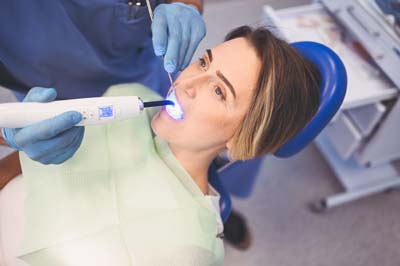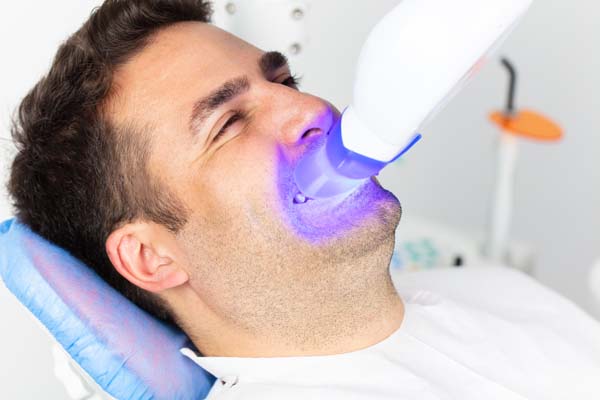Can an Oral Piercing Have an Effect on Your Oral Health?

Oral piercings are a form of self-expression and have become increasingly popular among teenage boys and girls. Many areas of the mouth can be pierced, but the tongue and lips are the most common spots. Although it may seem harmless, this form of body art can bring some complications, including with oral health. Because the area is continuously exposed to moisture, it becomes an ideal breeding ground for bacteria, sometimes causing adverse health side effects.
Tongue rings can lead to infection and swelling if improperly taken care of. Depending on a person's overall health, these infections can cause other health issues. However, these are not the only effects to your health. The jewelry itself can break off in your mouth and damage or cut the inside of your cheeks, tongue, or throat. You can also chip your teeth while you eat, talk or sleep from the metal of the piercing. Most of the times these are relatively minor issues, however, the possibility of it being more severe is always there.
Other oral piercing effects on oral health:
- Difficulty speaking, chewing and swallowing
- Damaged tongue, gums, and fillings
- Difficulty taking an X-ray of your teeth
- Allergic reaction to the metal in jewelry
- Chipped or cracked teeth
It is easy for the jewelry to bump against your teeth when speaking or eating. This frequent contact can chip the tooth enamel. Biting down on it can also cause cracks that extend to the nerves of the tooth, which could require a root canal to fix. Because of these detrimental effects, the American Dental Association advises against the use of tongue, lip and uvula rings. Because of the risks involved such as damage to teeth, the safest path is avoiding oral piercing altogether.
How to avoid problems
If you already have an oral piercing by taking the right steps, you can continue to have good teeth and oral health. Taking care of your piercing properly will help you maintain good oral hygiene and avoid any of the issues covered above. First, start by choosing the right type of jewelry works well with the location in your mouth, and will not cause damage if it bumps against your teeth.
Also, avoid playing with the piercing using your tongue or teeth. It can be tempting, but it has the potential to damage your teeth and gums. Also, check the piercing daily to ensure the ends are properly fastened. Keep the site clean and free of any grime or food particles by using a mouth rinse after every meal. Check the tightness of the ring periodically to prevent it from coming loose, being swallowed or accidentally bitten down on. If you play any sports, remove the jewelry and re-insert it when you are done.
Where the piercing is can make all the difference
If you have a tongue piercing, make sure to use polymer balls to reduce the risk of damaging your teeth. Choose a smaller ball for the underside of your tongue to lower the risk of contact with your sublingual. More importantly, keep your mouth as clean as possible by brushing and using mouthwash after every meal.
When you have an oral piercing, practicing basic oral hygiene should be an even greater priority. Strictly adhere to a professional’s recommendation of brushing and flossing twice daily. The last thing you want to have happen is an infection to begin.
Do you have more questions about how to take care of your oral piercing and teeth? Contact us here: https://www.pacifichorizondentalarts.com or call Pacific Horizon Dental Arts at (714) 260-0763 for an appointment in our Placentia dental office.
Recent Posts
It is hard to miss the sound of someone snoring next to you, and, surprisingly, it may be caused by a person's oral health. Snoring is bothersome and has adverse effects on relationships. What happens is that during sleep, the muscles in the mouth, tongue and throat collapse, causing partial obstruction of the airway. As…
Dental appliances refer to a number of different devices that are used to help treat a person's teeth. They may be permanent or temporary appliances that a dental professional applies to help a person in need of dental treatment.While the word dental appliances may sound big and scary, it actually just refers to simple things…
The different types of floss and tips for flossing make it possible to keep the tight spaces between teeth free of food particles and plaque. That goes a long way when it comes to fighting tooth decay. Dental floss is used to remove the plaque, food particles and bacteria that become lodged between teeth after…
Oral hygiene is probably the last thing on your mind when you are planning your vacation. You are likely thinking about warm temperatures, clear skies, refreshing water, sand and fun. However, if you spend too much time enjoying yourself, you will either forget to clean your teeth or simply neglect them as you are exhausted.…


